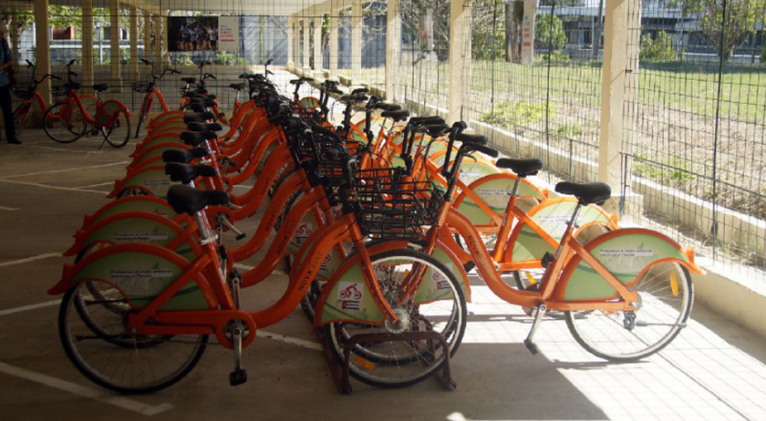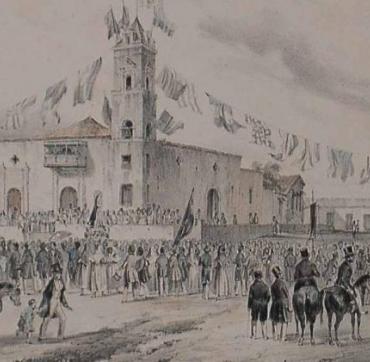Do we get any further by pedaling?
especiales

There is a Local Development Project in Havana which aims to prove that, yes, we can get farther and with better personal health and with and ecology-friendly environment. This pilot project is named Ha’Bici-Inteliforja, and has just inaugurated a System of public bicycles in the surroundings of the José Antonio Echeverría University City (CUJAE).
This is the first step to broaden this initiative in the municipalities of Boyeros and area of CUJAE, according to a press release were the active experience of a similar initiative in Habana Vieja (Old Havana) is also mentioned. This alternative complements other existing travel options and opens new routes at the same time, while reducing considerably the pollutant load and promoting healthy practices.
The services will kick off in the form on rent on-demand in two stations (CUJAE and Reloj Club) to give way to pilot-testing a system with 6 bike stations and over 300 bikes, located in Reloj Club, CUJAE, Abel Santamaría, Wajay, and Fontanar.
The idea is to promote an inclusive system with cheap prices, where nearby neighbors and Havanans in general, or those visiting Havana, may rent a bicycle and ride from one station to another, or in any routes with different and accessible tariffs for all.
Ha’Bici-Inteliforja managers confirm that, in the future, other options will be included, such as courier service, assisted transportation for vulnerable individuals among other complementary services.
2023 on wheels
This year, Ha'Bici-Inteliforja aims "to be closer to the community and the people we work for.” To achieve it, they have begun to tell us the story from the very beginning through their social networks:
"Ha'Bici emerged in November 2018 as the first pilot public bicycle system in the city that is committed to sustainable mobility. The founders of this first experience based in Old Havana were: The Office of the Historian of Havana (OHC), the Vélo Cuba entrepreneurship project, the Basque Government, the company Tecnalia and the General Directorate of Provincial Transportation of Havana (DGTPH).
"In January 2021, a tender was launched for the selection of a new operator in the Boyeros pilot area. This call was promoted by the Neomovilidad project coordinated by the DGTPH and implemented by the United Nations Development Program (UNDP), and funded by the Global Environment Facility (GEF).
"The private group Inteliforja won the tender among several candidates. Two years later we can say that... we have achieved it! The Ha'Bici-Inteliforja team is ready to grow the city's public bicycle system and contribute to the use of this fun, sustainable and healthy means of transport."
Neomovilidad in context
Information released regarding the opening of the CUJAE station explains:
The promotion of the safe, daily and massive use of the bicycle as a sustainable and ecological means of transport, which contributes to the mitigation of climate change, constitutes the general goal of the Cycling Mobility Strategy in which the General Directorate of Provincial Transport of Havana (DGTPH) is working. As part of the actions to develop this strategy, and as one of the Pilot Interventions of the Neomovilidad Project, a Public Bicycle System will be implemented in this area of the city, which will boast 300 bicycles and 6 bike stations from where bicycles and other associated services will be rented and provided, respectively.
The Neomovilidad Project is operated nationally by the DGTPH belonging to the Provincial Government of Havana, implemented by the United Nations Development Program (UNDP) and financed by the Global Environment Facility (GEF), specifically for the thematic area climate change mitigation.
Translated by Sergio A. Paneque Díaz / CubaSí Translation Staff














Add new comment